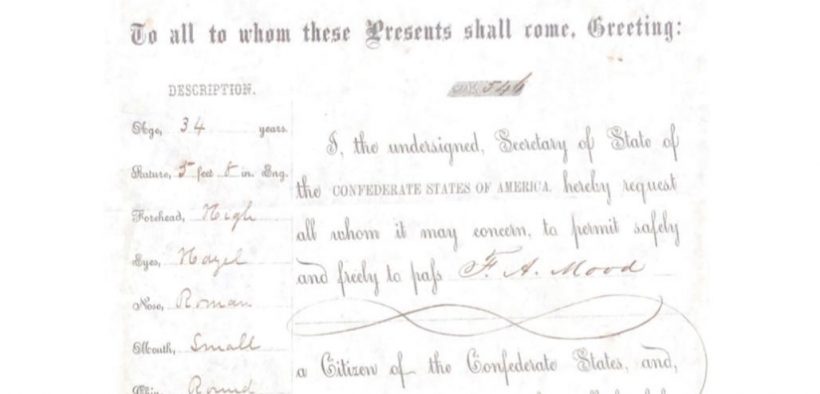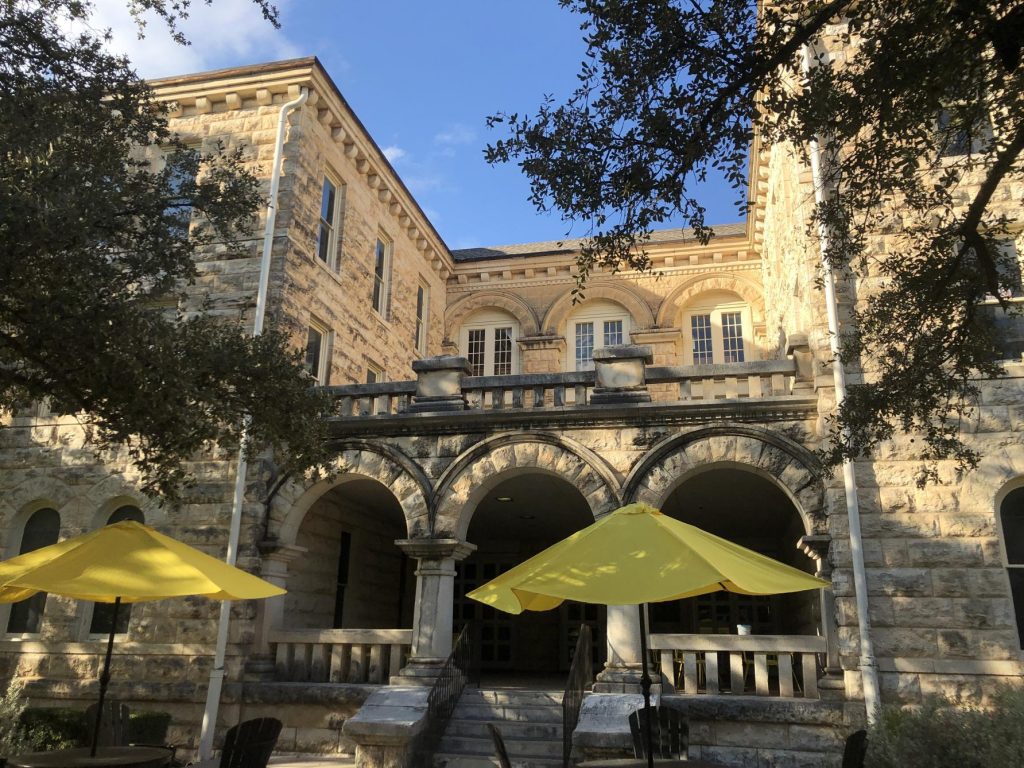Francis Asbury Mood: Chaplain, SU Founder, and Confederate
Share

Dr. Francis Asbury Mood was the founder and first President of Southwestern University. Some Southwestern students find it concerning that his name appears on several Confederate States of America records. America’s Confederate history provokes controversy on the Southwestern campus due to the nearby Confederate graves and a local Confederate statue. Francis Mood was crucial to unifying Soule, Ruter, Wesleyan, and McKenzie into Southwestern University — which was a seemingly impossible task at the time.

Francis Mood was one of six children and was born in South Carolina in 1830. He was raised with strong Christian values that he continued to uphold in his adulthood. While he was later involved in the Confederacy due to his geography, his family heritage had helped fight for the independence of America. His great-grandfather, Peter Mood, immigrated from Burtember, Germany to Pennsylvania before the American Revolutionary War. During the war, Peter was captured. He died as a prisoner due to a hemorrhage in his lungs from braving the Delaware River. At 12 years of age, Peter’s son became fatherless. He would later move to Charleston, South Carolina where he became a silversmith and jeweler. There he married Mary Sigwald and the Mood family established itself in Charleston, South Carolina. This aspect is essential to Francis Mood’s post-Civil War move to Texas which led to the creation of Southwestern University.
Francis’s father, a Methodist minister, inspired him to become officially licensed to preach in 1849. Francis felt a higher calling toward serving God while receiving his education at Charleston College, where he later pursued his master’s degree.
The Methodist Church in Charleston had a large free colored membership making it crucial for the needs of the community to be met. With the importance of religion in their family, the Moods would play an important role relating to Civil Rights in South Carolina. South Carolina law barred the teaching of “blacks, free or slave” with the consequence of prison and fines. The town of Charleston notably had 13 schools for freed slaves. The Moods, primarily Francis’ brothers Henry, John, and James assisted in teaching free African-American children. Their father, however, owned several enslaved people and worked to produce badges that identified those who were enslaved.
As political tensions rose preceding the Civil War, Francis was a witness to political canvassing in the Election of 1860. This election was only between Breckenridge, Bell, and Douglas since Lincoln (who wanted to prevent the expansion of slavery) was removed from the ballot in ten Southern states (Alabama, Arkansas, Florida, Georgia, Louisiana, Mississippi, North Carolina, South Carolina, Tennessee, and Texas). Upon Lincoln’s election as president, many buildings in South Carolina were draped in black by people who wished to convey their somber feelings regarding the election results. Slaveholders were skeptical of the election of Lincoln and used their political power to promote secession. South Carolina, Mood’s home state, became the first state to secede. Mood “went all the way down to Charleston, was recognized as a citizen there, and cast [his] vote for secession.” Later, he experienced anxiety and distress while witnessing the Battle of Fort Sumter. Francis saw a small boat make its way out toward the fort with a single passenger, Confederate Senator Wigfall of Texas. The Senator came to help Colonel Anderson as a fellow freemason. Afterward, Francis accompanied officers to Fort Sumter and assisted in the evacuation of Confederate soldiers.
During the Civil War, every Southern man, including ministers and physicians, faced the possibility of being drafted into the Confederate military. After the chaplain at the Charleston hospital died in the war, Francis applied for the position. Charleston soon came under siege by the Union forces. Confederate troops began to abandon Charleston due to the potential arrest by Union troops if the city was taken. While some stayed due to the threat of being charged with desertion, Francis was not bound to stay with the Confederate army due to his health conditions. As a result, Francis and his family left the city.
After the Confederacy surrendered, Francis pledged allegiance to the US in New York. When the Union took Charleston, the city was burned so Francis’ family would need to rebuild their lives. During Francis’ education at Charleston, he perceived the school faculty to be unfriendly as well as “old fashioned and non progressive,” and primarily invested his time into pursuing his faith. This was important in his life and he felt he would better express his beliefs by joining the Methodist Conference in South Carolina. His involvement in the Methodist Conference would lead to his founding of Southwestern University when he was sent to Chappell Hill.
To support his family, he accepted (after initially denying) a job as the President of Soule University. As University president, Francis had the vision to create a new University. During Francis’ education at Charleston, he perceived the school faculty to be unfriendly as well as “old fashioned and non progressive”, and he believed that a new university would best make an environment that would provide both the needs of the Methodists in Texas and where students and faculty could engage. He combined Soule University, Rutersville College, Wesleyan College, and McKenzie college to form what is now Southwestern University.
